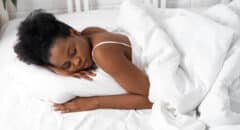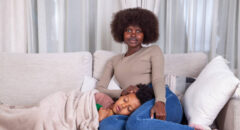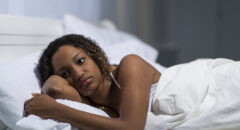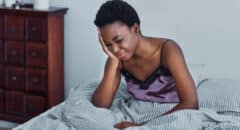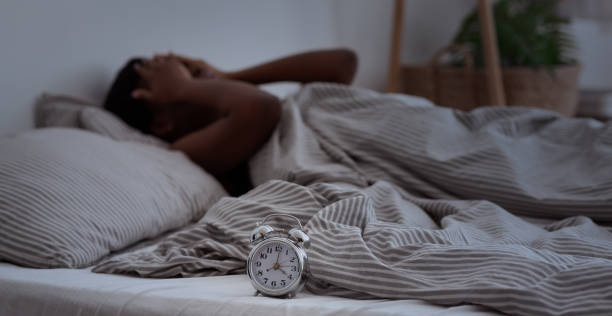
As you become older, your sleep patterns can change and become inconsistent based on hormonal changes and your internal clock, also known as circadian rhythm. According to the National Sleep Foundation, circadian rhythm regulates "the timing of periods of sleepiness and wakefulness throughout the day." Disruptions in your body's natural sleep/wake cycle can impact weight gain/loss, mental health and whether you experience increased risk for heart-related events such as heart attack and stroke.
READ: Too Tired To Sleep? Here's Why
Since sleep is so important to helping your body function better, it is important to know what may be coming between you and a good night’s sleep.
Here are some factors which could cause you to lose sleep:
1. Caffeine and alcohol intake.

Too much caffeine and alcohol can disrupt your sleep patterns. When you drink caffeine, which is a stimulant, it moves into your bloodstream and stays in your system for about six hours before half of the caffeine is eliminated. The more caffeine you drink, the more it stays in and stimulates your system.
Alcohol is a depressant but has a similar effect. Alcohol causes you to relax initially but works against you getting deeper, more restful sleep. Alcohol impacts your rapid eye movement, also known as your REM or deep sleep. While you may initially fall asleep after having alcohol, it disrupts your sleep as the night goes on and you have less REM sleep.
2. Loneliness can cause sleepless nights.
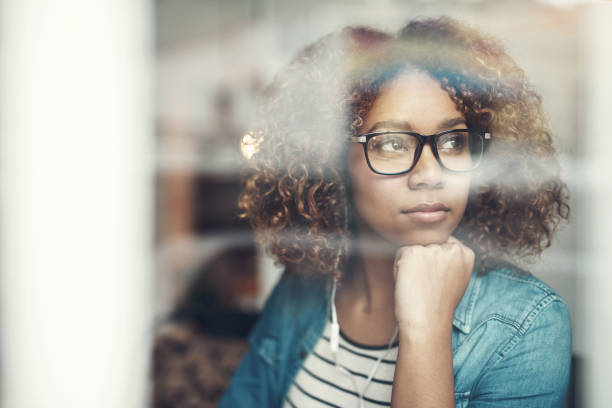
Feeling as though you are alone or as though you have a lack of support from others in your life can impact your sleep patterns. A small study from the University of Chicago found that participants who felt lonely experienced more nighttime disruptions and restlessness.
READ: Drink This At Night To Shrink Your Stomach While You Sleep
If you are feeling lonely and believe this could be impacting your sleep, build a support system around you. When people have a support system, this helps them achieve better rest. Develop friendships and networks with people who can be there when you are going through tough times so you don’t feel as though you are dealing with things on your own. Additionally, staying active in the community, doing volunteer work, or participating in hobbies can help you counter those feelings of loneliness.
3. Working the night shift can throw off your body’s internal clock.
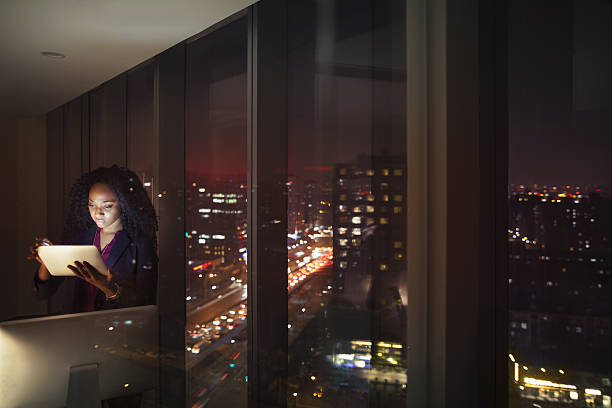
Your internal clock can impact and shape much of your sleep cycle, but insomnia can set in if you try to sleep outside of
your normal sleep patterns. If you work the late-night shift you may have moments in which you dose off or become extremely tired because working through the night is counter to your normal sleeping pattern.
If you work the night shift, here are a couple of things you can do so that you do not become sleep deprived. Limit your caffeine intake to the first part of your shift, but eliminate caffeine intake during the second shift. After your shift, go home and go to sleep. Avoid running errands or doing other things. Finally, since sunlight stimulates your circadian rhythm, limit the sunlight in your room when you are sleeping. Blackout blinds or heavy drapes can help you block the sunlight during the day and help you sleep better. By establishing a regular sleep routine after your shift, it will allow you to sleep more soundly.
READ: Consequences Of Sleep Deprivation
4. Sleeping with your pets might be keeping you awake.
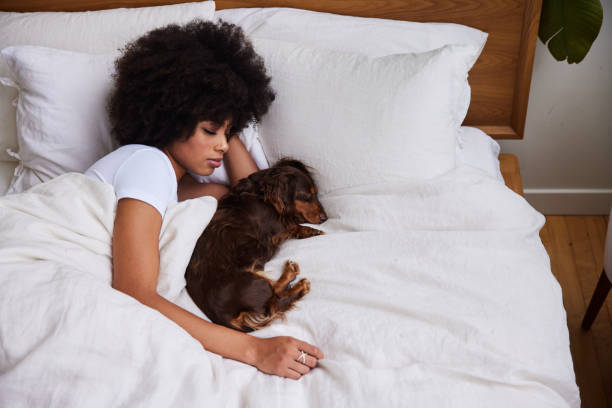
In a study conducted by Mayo Clinic, researchers found that 53% of pet owners who slept with their pets had disrupted sleep every single night. In this same study, only 1% of pet owners felt that their sleep was impacted by sleeping with their pets. And of these pet owners, 21% of the pet owners admitted that their dogs were snorers, and 7% said their cats snored.
So that you and your pets get more sound sleep, have your pets sleep outside your bedroom or at least on the floor versus in your bed.
5. Light can play havoc with your sleep patterns.
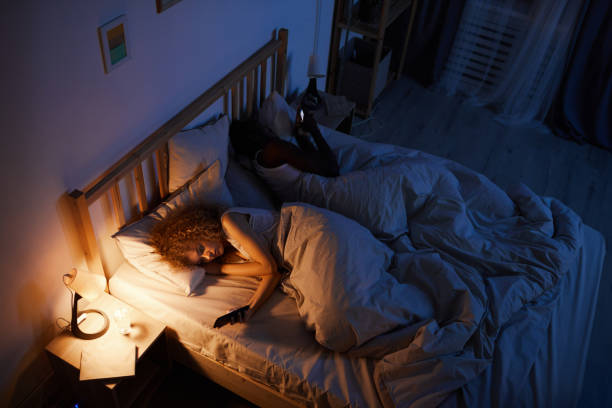
Light plays an important part in your sleep and wake cycle. Too much light can make it difficult to fall asleep and impact your circadian rhythm. Light impacts your internal sleep clock through something called “light sensitive” cells, which sit in the retina of the eyes. These cells signal to your brain whether it is night or day and directly impacts sleep patterns.
We also have light exposure in the late evenings with artificial light from clocks, computers and cell phones, which impacts your internal clock and sleep cycles leading you to prefer going to sleep later than you normally would.
Limit your exposure to bright light during the periods before you are going to bed. Be cognizant of constantly looking at your phone, computer or having bright lights on as you prepare to go to sleep.
Having healthy sleep habits is key to your health and peace of mind. Knowing what impacts your sleep is the first step to having more sound sleep. Sleep well!




